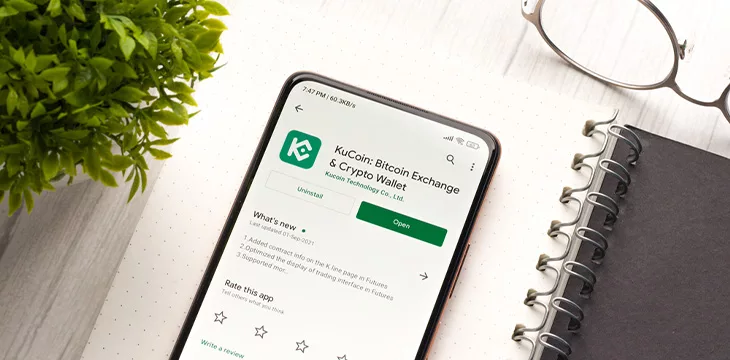|
Getting your Trinity Audio player ready...
|
Digital currency exchange KuCoin has announced that it will be bolstering its Know Your Customer (KYC) program for all classes of users “in accordance with the applicable regulatory requirements.”
The exchange disclosed its new stance via a post on its website, stating that new customers must complete all the steps in the KYC program before accessing any of the services. According to the post, the new KYC policy will begin operation on July 15 for both new and existing customers of the exchange.
In its post, KuCoin said, “We continually protect our customer’s assets and combat money laundering, terrorist financing and related financial crimes around the world, based on this, KuCoin will enhance the Customer Identification and Verification Program.”
Old users of the exchange will be restricted from having full access to the platform’s services unless they comply with the KYC requirements. Per the post, existing users will only be allowed to make spot trading sell orders, margin, and futures trading deleverage, and KuCoin Earn redemption and will be precluded from making deposits.
KuCoin added that the new development would not adversely impact funds held in accounts but noted that the dynamic nature of regulations might warrant new changes.
“Protect customer’s assets is our primary duty,” KuCoin said. “We will timely update the KYC requirements and corresponding limits according to the relevant legal obligations, integrate with the properties of various products and network environments.”
Global regulatory agencies have pointed accusing fingers at digital currency exchanges for facilitating terrorist financing, money laundering, and other financial crimes on account of their lax KYC policies. Binance is currently under investigation by both U.S. and French authorities for “acts of aggravated money laundering.”
In April, Bybit announced a May 8 deadline for users to complete their KYC verifications or face service restrictions. The exchange stated that the verification process could take up to 48 hours to be completed but assured customers that “personal information will be encrypted and protected for privacy and security.”
Regulatory efforts to regulate exchanges
Since 2020, global regulators have been pushing for improved policing of digital currency exchanges over concerns that bad actors are leveraging the borderless nature of Web3 to commit financial crimes.
The Financial Action Task Force (FATF) floated the travel rule, requiring exchanges to forward relevant details of digital currency transactions to regulators to encourage transparency. Since its launch, several jurisdictions have ratified the Travel Rule to augment their local regulation attempts.
In 2022, the U.S. Treasury sanctioned Tornado Cash, a digital currency mixer used to obfuscate transactions, for facilitating the laundering of over $7 billion worth of digital assets from cybercriminals.
Watch: The Future of Exchanges & Trading in a Tokenized World

 06-30-2025
06-30-2025 





